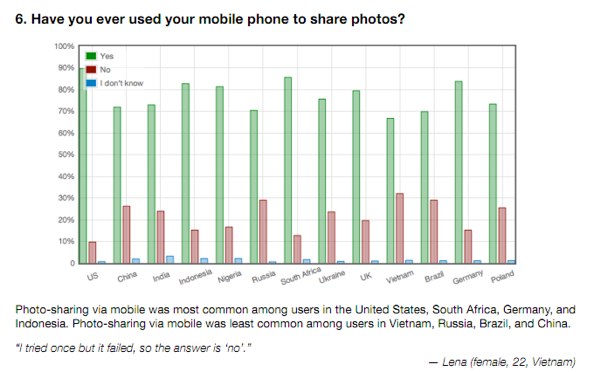
Opera’s mobile browser, Opera Mini has had a big year. It’s iPhone app was approved, saw one million downloads in the first day and since the mobile browser has been growing like gangbusters. Today, Opera released its state of the mobile report showing that Opera is continuing to grow in terms of usage.
In October, Opera Mini had over 76.3 million users, a 7.1% increase from September 2010 and more than 92% compared to October 2009. Opera Mini users viewed over 41.6 billion pages in October 2010, which is an increase of 142% since last October.
In the past month, Opera Mini users generated over 616 million MB of data for operators worldwide. Since September, the data consumed went up by 15.1% and dat traffic is up 134% since last year. Data in Opera Mini is compressed up to 90%. If this data were uncompressed, Opera Mini users would have viewed over 5.7 petabytes of data in October.
The report also took a look at usage in the countries in the Commonwealth of Independent States including Russia, Ukraine, Kazakhstan, Belarus, Uzbekistan, Armenia, Kyrgyzstan, Moldova, Azerbaijan, Turkmenistan and Tajikistan. From October 2009 to October 2010, page views in these countries increased by 128%, unique users increased by 44% and data transferred increased by 119%. The most popular sites include Vkontakte, Yandex, Odnoklassniki.ru, Google, and Mail.ru.
Another interesting data point in the report related to a survey of how Gen Y users are interacting with their mobile phones. Almost 90% of respondents in the United States aged 18-27 have used their phones to share pictures. Respondents in the U.S. were least likely to have asked someone out on a date via SMS (44%). Respondents in China (84%), Germany (84%) and Vietnam (83%) are most likely to have used SMS texts to ask someone out on a date.
Opera reports that 53% of respondents in the United States and 57% of respondents in China rarely or never read physical newspapers. And 44% of U.S. respondents were somewhat to very uncomfortable sharing their personal information online.
